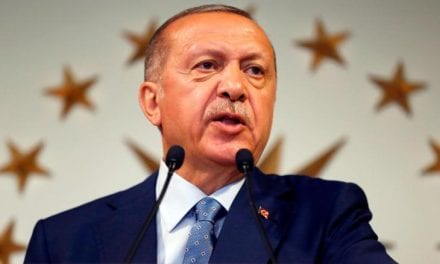By Stephen Pope
Another week of bridge building
The Greek Prime Minister, Alexis Tsipras, after Greece had made a loan repayment to the IMF of approximately €350 million, that Greece had begun to deliver the strategic action required to release additional tranches of bailout funding.
The Greece Public Debt Management Agency issued a payment order to be transferred to the IMF and the money was scheduled to be deposited in the IMF account on Friday, March 13. In return the Prime Minster said that he and Greece expected that the Eurozone would now fulfil its part of the bargain.

The Eurozone leaders meeting in Brussels this week is an opportunity for Alexis Tsipras and Angela Merkel to hold separate talks on fixing Greece’s debt woes. Photo: iStock.
Tsipras and his Finance Minister, Yanis Varoufakis, have spent a busy week negotiating with the their fellow nations in the Eurozone, so as to secure the release of additional funds from the country’s €240 billion bailout against a backdrop of concern that the Greek government could run out of cash at any moment.
Tsipras said in Brussels on Friday: “We will solve all these misunderstandings. The Greek people need to hear a hope message”.
Timelines and treaties
The next critical financial deadline falls at the end this week on Friday, March 20. That is when the government is scheduled to make another payment to the IMF for the sum of €346 m, and it also has to find the finance to rollover €1.6 bn of Treasury Bills. As this happens, there will also be a two-day meeting in Brussels between Eurozone national leaders. It will be interesting to see if Prime Minister Tsipras and German Chancellor Angela Merkel hold a separate bilateral discussion.
Finance Minister Varoufakis told a news conference at the Ambrosetti Workshop in Cernobbio, Italy, last week that Greece had undertaken the steps required to honour its debt payments, and in cooperation with the European institutions had taken every precaution necessary to ensure that was no financial accident.
He said it would be helpful if the ECB could demonstrate an element of flexibility with Greece, as it did in the summer of 2012 when it allowed the country to raise the Treasury Bill issuance limit when there was almost complete lack of access to markets.
Three years ago the newly elected government of Antonis Samaras was rapidly running out of cash. It hadn’t completed the terms of a bailout plan agreed by its predecessor with the troika and was unable to gain access to liquidity under that scheme.
To overcome this problem the government issued more short-term Treasury Bills to Greek banks. They were able to access cash, in turn, by using the bills as collateral with the Eurosystem. To enable this operation to work the ECB temporarily raised the amount of Treasury Bills that Greek banks could use as collateral with the Eurosystem from €3.5 bn to €7.0 bn.
However, in 2015, the government of Alexis Tsipras is also running out of cash and has not implemented the terms of the bailout plan agreed by its predecessor. Therefore it cannot access liquidity from that scheme. It now wants to issue more Treasury Bills to Greek banks. On this occasion the ECB is refusing to raise the collateral cap and it has told Greek banks not to increase their credit exposure to the government.
Tsipras and Varoufakis have said that this position taken by the ECB has placed a cable tow with a running a noose round Greece’s neck. Varoufakis has added that the ECB was fully flexible in 2012, but was now being disciplinary.
To counter these claims the ECB President, Mario Draghi, sought to justify the draconian approach as he said that if a bank brought collateral to the ECB and then used the cash to buy government debt; that constituted monetary financing of a state by the central bank under Article 123 of the EU Lisbon Treaty.
One can sympathise with Greece on this point as if the ECB would breach the Lisbon Treaty by raising the collateral cap today, it would surely have fallen foul of the treaty in 2012. Also, if one digs into the rather dry text of the treaty one will find that Article 123 prohibits only direct, rather than indirect, funding of governments.
Enough support for now
However, I have an established track record on this matter and believe if one weighs the magnitude of the grace and favour that the ECB has already extended to Greece, it is unrealistic to expect ever more accommodation. How much Greek debt should the ECB load onto its balance sheet? If it proves impossible for the Greek government and other Eurozone nations to establish some common ground for an agreement, then why should the burden fall on the ECB? After all, Greece does owe money to the central bank for previous loans. When an institution is awaiting a repayment it is unlikely to extend even further credit facilities to its debtor. No one throws good money after bad.
This situation is serious and the need for rapid progress from all sides is becoming ever more heightened. Without an agreement Greece will surely face a liquidity crisis.
Varoufakis vision, Schäuble sarcasm
Last week the Finance Minister Varoufakis said he has an alternative to cover the Greek cash, shortfall though surprisingly he declined to say what that option was. Such posturing has won Varoufakis no friends in Brussels, and after the Eurogroup meeting, Eurozone Finance told him to stop wasting time.
The German Finance Minister, Wolfgang Schäuble, suggested his Greek counterpart’s understanding of the February 20 agreement extending Greece’s bailout program wasn’t up to scratch.
Schäuble told reporters: “He just has to read it. …I’m willing to lend him my copy if need be.”
Greece’s ambassador in Berlin made an official complaint to the German Foreign Ministry on Tuesday over Schäuble’s comments, although Schäuble dismissed the suggestion that he had insulted Varoufakis as being absurd.
Clearly the mood between Germany and Greece is far from cordial as on Thursday, March 12, in a television interview in Austria, Schäuble kept up the pressure by saying: “Greece’s future in the euro lies entirely in the hands of Tsipras’ government and problems can’t be solved by declaring others scapegoats.”
German poll backs Grexit
Asked whether that means Greece might leave the euro, Schäuble said: “Because the responsibility and the possibility of deciding what will happen lies only with Greece, and because we don’t exactly know what those responsible in Greece will do, we cannot rule it out.”
A survey published by ZDF Television on Friday showed that 52% of Germans would rather Greece left the Euro, cf. with 40% who want it to stay. ZDF ascribed the reversal of sentiment from the last survey to the Tsipras government’s lack of seriousness in dealing with the rest of Europe. As for the negotiations, 80% said Greece is not taking the talks seriously enough.
It certainly does not help when Greece threatens to seize German assets as compensation for Nazi war crimes; 70 years after the end of WWII. The threat, made by the Greek Justice Minister and reported in the daily newspaper “Kathimerini”, has been supported by Prime Minister Alexis Tsipras, who told the Greek parliament he would pursue the “very technical and sensitive” matter.
The issue was dismissed out of hand by Germany, with Angela Merkel’s spokesperson rejecting questions about reparations that “have been legally and politically resolved”.
For the German population, it would appear that Greece has no gravitas when it comes to monetary matters.
– Edited by Robert Ryan
Stephen Pope is the founder and managing director of Spotlight Ideas



















